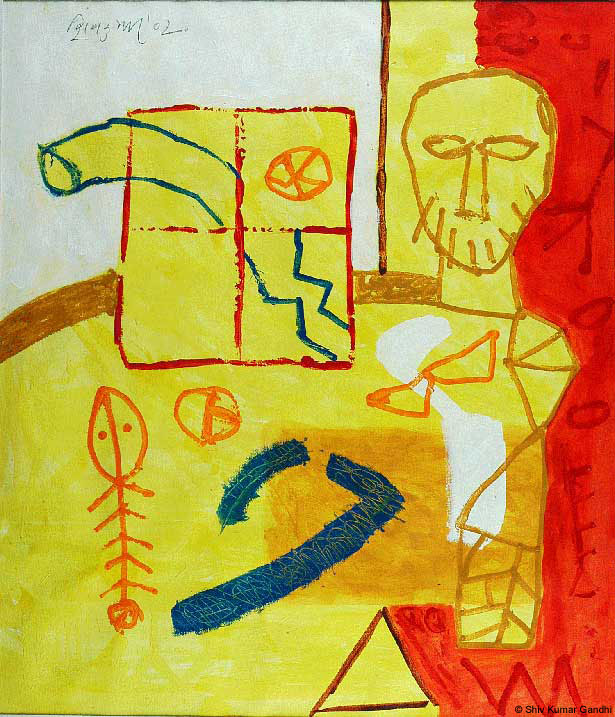प्रतिलिपि प्रश्नावली/Pratilipi Questionnaire

VARUN
1. Have you ever felt ‘terrorized’ by something? Have you ever told/described it to someone? Has it found an expression in your work?
Terror has been an integral part of our psyche for the last 25-years or so, which almost covers all my consciously growing-up years. Punjab was never a distant country facing distant problems, though Kashmir was always a ShammiKapoor-SharmilaTagore land even through Rubaiyya Syed’s kidnapping and at least until Manirathnam’s Roja brought home the truth.
And then, the days of Babri Masjid followed by riots, were again a mix of ‘unexpected holidays’ and ‘unexplained fear’ for us kids.
I have told this fear of growing up in an ever-impatient and increasingly less-tolerant society to many of my close friends and the response has varied from a ‘chill yaar’ to a systemic ‘explanation’ of the need for all this.
Yes it has found expression in my work many times. Since I primarily write for satire based TV shows, I do have some liberty to talk about darker issues of our times, though in a humorous way. But then, the humor is sometimes lost or can’t be seen in isolation.
2. At a psychological / aesthetic / philosophical level, can terror be ‘represented’ in art? Would you like to name certain works (art/writing) in which it has been done effectively?
An instant ‘ideological’ answer would be ‘yes, why not.’ Art can represent everything, from great philosophies to human follies of worse kind. But if we talk about ‘accessible art’, art that represents a ‘phenomenon’ like terror in its bare form and symbolism and still be accessible or allowed in our times, I would say ‘not yet.’
Terror, as I understand, is mostly a post-cold-war reality and art as well as politics of the world is still grappling to understand it, and there is the added burden of ‘being sensitive to all races/communities/groups concerned’. And still, Hindi films like ‘Aamir’ (2008) and ‘Mumbai Meri Jaan’ (2008) did go beyond the usual and may be because of the closer-home feel, they did put up an effective portrayal of a city in turmoil, people in conflict, and no end in sight, except that, as the last scenes of both the films indicate, we close our eyes and pray for peace. Sheer helplessness!
3. Which would you consider to be the most terrorizing moment / event / ideology you have known?
The ideology prevailing in most of the ‘educated’ class today about ‘the need of a reaction to every action’ is the most terrorizing one I have faced time and again. Everything, from Gujarat to MNS attacks to Mumbai terror attacks of 26/11 have been ‘explained’ or ‘justified’ by one class of people or another, over cups of tea at nukkad or in some highbrow newspaper columns, in heated-up blogs and ‘status-messages’ on orkut/facebook or the veiled response of our various politicians.
Terror has crossed the boundary of a common-enemy, and moved into the pastures of friendly analysis – an ‘us vs. them’ game where every blast/attack has a few victims, some sympathizers, some analyzers, and some rationalizers.
4. How do you respond to the rhetoric of terror(ism) in mainstream media and politics?
I wish I could ignore the rhetoric and move on…or sometimes, to smash the heads of media-heads for sensationalizing the most somber and personal fears of our lives.
But media is here to stay, terrorism is here to stay, and all we can do (more helplessness!) is to make some sense amidst all the tamasha or at least keep trying. Ridicule is one tool I use, in all my professional works as well as in my personal blogs about current news and media.
5. Have the (serial) blasts around made you feel insecure?
Yes, they have, but in a more internal way. They have opened to me a flash-flood of memories – of various dots of my own journey in this country of a million contradictions, and I end up joining them again and again to find the stories, the moments that made us so savage. Questions like ‘which India did I grow up in, and how it was different from the India the terrorists grow up in?’ crop up time and again.
I join these dots, get a new picture every time, and swing between intense optimism and grave pessimism. Death, once thought of as the great leveler, has become the great divider. Who dies, and at whose hands, has become a certificate for further destruction.
I don’t know why, but this line has been one of the most comforting in recent times: “we are not as important in the universe as we might believe.” Thanks Sameer!